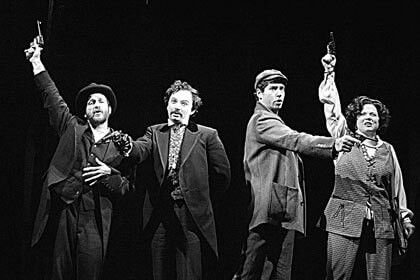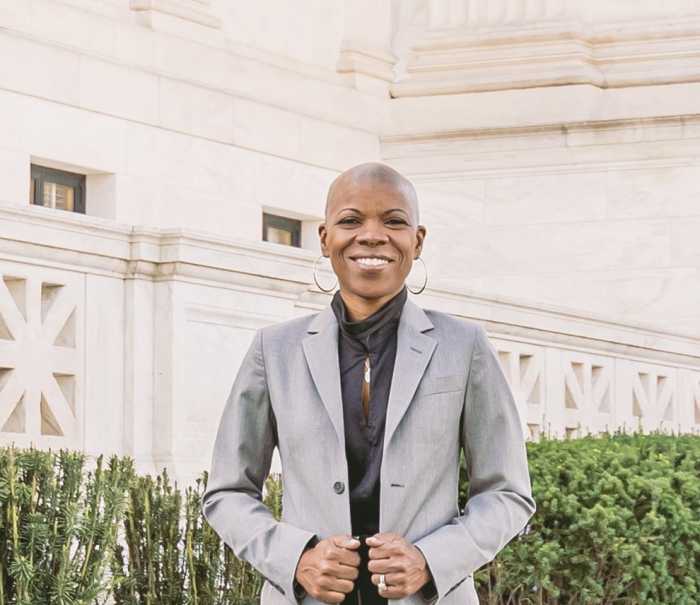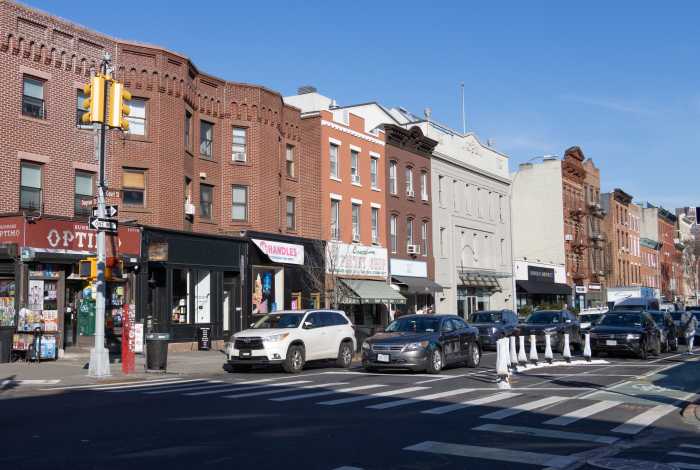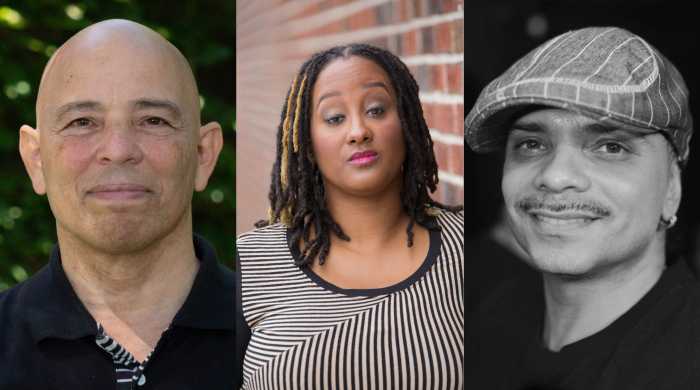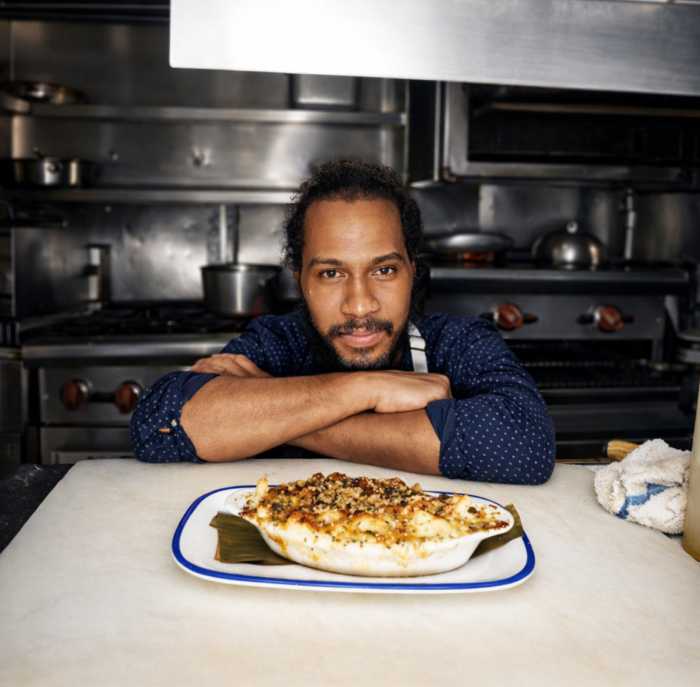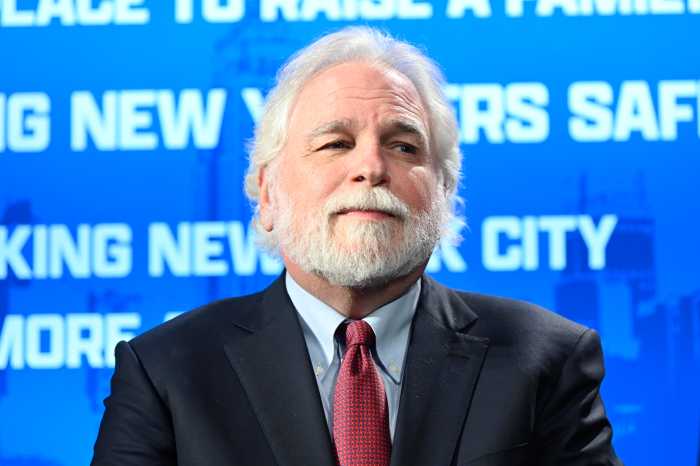The eruptions eroding civic life when we’re surrounded by assassins is made clear
Roundabout’s long-delayed production of “Assassins” has finally arrived on Broadway at Studio 54, and the wait has been worth every second.
Delayed after 9/11 because the subject matter was deemed too bleak, this icily brilliant production resonates with psychosis and cynicism. It also has a timeliness and relevance that is remarkable, deeply moving, and darkly thrilling. On every level and in every detail, this production consistently excels—a triumph for everyone associated with it.
In telling the story of nine assassins who either killed, or attempted to kill U.S. presidents, Stephen Sondheim and John Weidman turn a crazed mirror on our national psyche. Yes, we are a can-do nation. Yes, we look on the bright side, as one of the assassins Charles Guiteau exhorts us to do. Yet, what happens when “every now and then a madman comes along?” We live in a time of unprecedented stridency, when the cacophony of outrage in the media on both sides of any question obscures, often intentionally, rational thought.
Ours is an era not of great thinkers but polished purveyors of the sound bite and sloganeering whose objectives are to pre-empt coherent discourse and drive us instead into a kind of insanity defined by unthinking emotionalism. In 2004, there are assassins among us every day, whose weapons are words rather than guns. Yet words and, particularly in our time, images, can be as effective and every bit as lethal. “Assassins” demands that we look closer at the actions and the ideas that are abroad at home today.
The episodic story takes place at a carnival midway in an unspecified time and place. The opening number, “Everybody’s Got the Right,” suggests that the cure to whatever ails you is killing the president and invites anyone so inclined to step up and win a prize, since, after all, “first prize often goes to rank beginners.” Each assassin steps forward and we are taken into the world and minds of these individuals. It is to the credit of Weidman and Sondheim that the characters, though undeniably psycho, are also sympathetic and that we are drawn into their realities, gaining a skewed understanding of what drives each of them to think that killing a president makes sense. The inevitable question is how close does one get—can one get—to crossing a line into the unthinkable?
“Assassins” is plenty dark all right when it comes to the corruption of the soul, but then, so is “Medea.” Like the best classic drama, “Assassins” delivers a cathartic experience inspiring in its darkness.
In fact, every bit of this show is inspired. Joe Mantello has directed the production with a fearless, in your face quality that forces attention on the characters. He has created an intellectual train wreck of a world riveting even as it is horrifying, exhilarating even as it induces the creeps, and beautiful in its own way even as we are aware of the violence and destruction that pulsates under the show’s every moment. The visceral dramatic tension of the show is magnificent.
The set by Robert Brill is superlative. The action takes place under a wooden roller coaster, perhaps the most disquieting place in the metaphoric amusement park he has created—a kind of hellish limbo where peace is impossible. The lighting by Jules Fisher and Peggy Eisenhauer is the best on Broadway right now. They manage to create the disjunction of time and place with color values and intensity with a specificity and intelligence that is masterful.
The company, to a person, is flawless. Marc Kudisch plays the Proprietor, a kind of antic spirit who haunts the midway. Kudisch is known for his wholesome Dudley Do-Right type of musical heroes, and while always appealing, in this role he exposes a depth unseen previously. He plays it with gleeful malevolence, and his voice has never been better, allowing him to use the powerful lower end of his range, often to startling effect.
Michael Cerveris is amazing as John Wilkes Booth, the “pioneer” and idol of all the assassins. Becky Ann Baker as Sara Jane Moore is a trip, all scattered, bumbling into attempted murder. Mario Cantone gives the performance of his career as Samuel Byck who tried to kill Richard Nixon, offering a portrait of insanity truly scary to watch. Alexander Gemignani as John Hinckley is both crazy and lost. And the others—James Barbour as Leon Czolgosz, Denis O’Hare as Charles Guiteau, Mary Catherine Garrison as “Squeaky Fromme—give finely detailed, exceptional performances.
Neil Patrick Harris plays the Balladeer who becomes Lee Harvey Oswald. He is strong in both roles but better in the latter. Perhaps the only weakness in the script is that it’s unclear who the Balladeer is and why he’s there.
If one performance stands out above the others, it’s Jeffrey Kuhn as Guiseppe Zangara, who inadvertently killed the mayor of Chicago in an assassination attempt on President-elect Franklin Roosevelt in Miami in early 1933. Kuhn gives a performance of such blinding intensity and total commitment that one sits transfixed as Zangara comes apart. At the end of the number “How I Saved Roosevelt,” Zangara is strapped in the electric chair and goes to his death in an unrepentant fury. I have never seen anything like it. Kuhn holds the audience breathless, and the effect is so shocking that nobody was stirring.
This is a limited run, and seats are limited. You worry about getting the seat, and Mantello, Sondheim, Weidman, and the cast will keep you on the edge of it.

